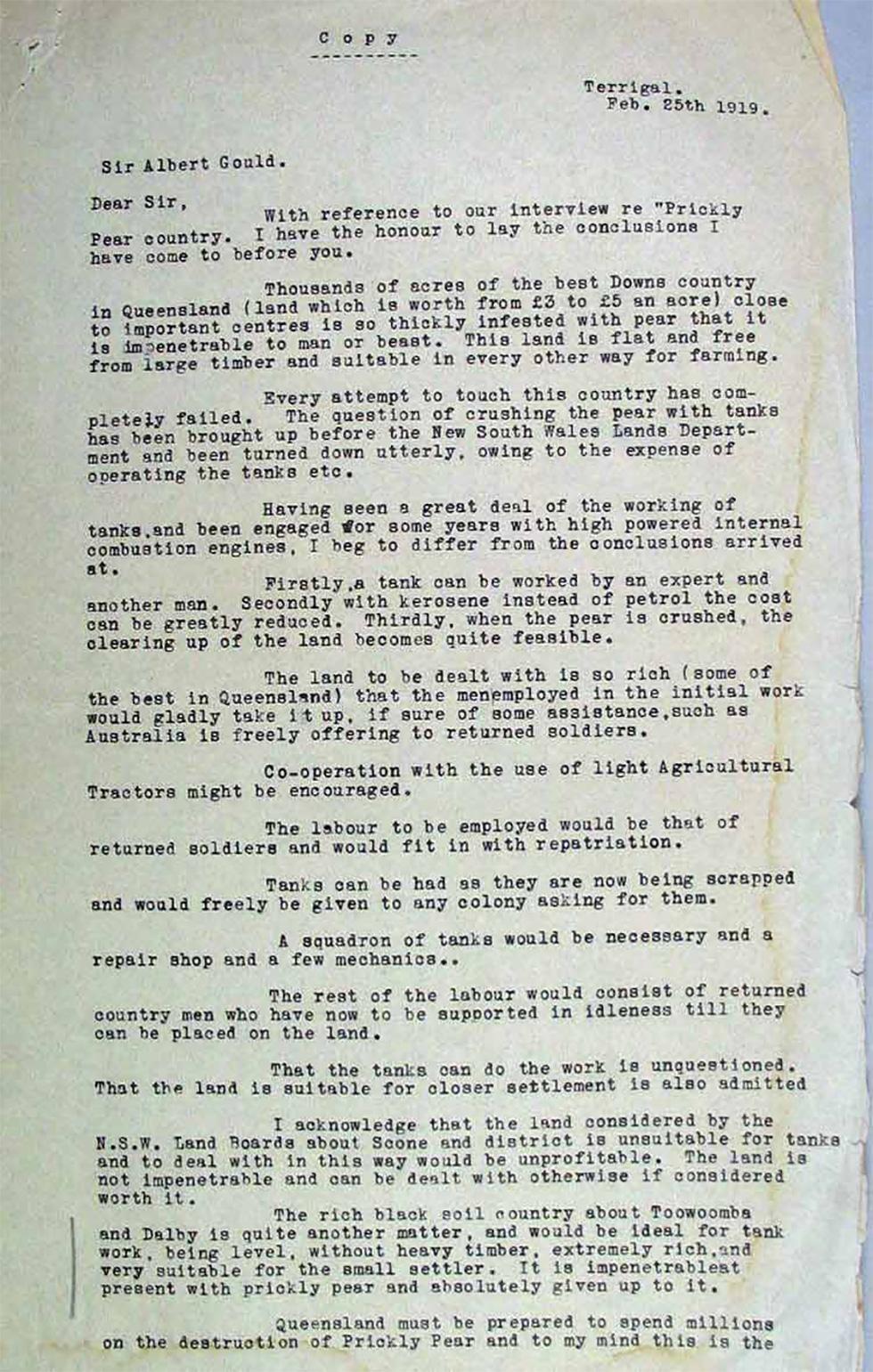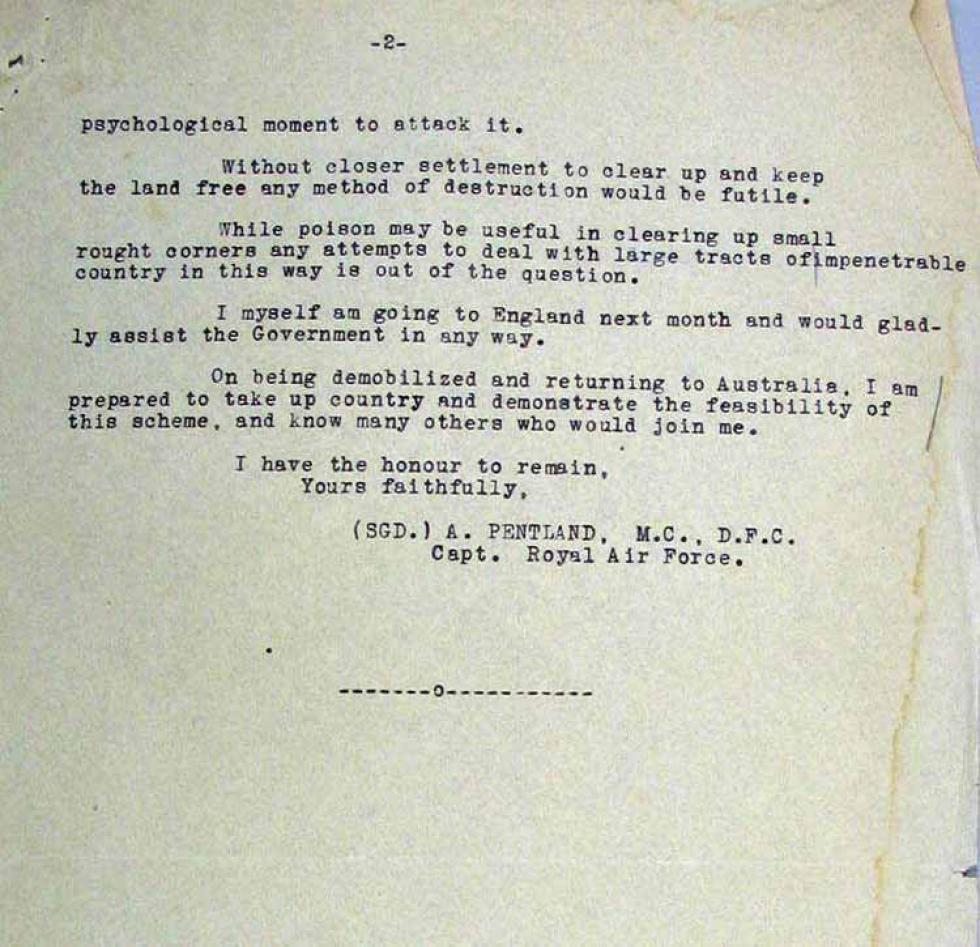
Letter to Albert Gould - page 1

Letter to Albert Gould - page 2
Aboriginal and Torres Strait Islander people should be aware that the National Archives' website and collection contain the names, images and voices of people who have died.
Some records include terms and views that are not appropriate today. They reflect the period in which they were created and are not the views of the National Archives.


Letter to Albert Gould - page 1

Letter to Albert Gould - page 2
[Page 1]
Copy [underlined]
Terrigal.
Feb. 25th 1919.
Sir Albert Gould.
Dear Sir,
With reference to our interview re “Prickly Pear country. [sic] I have the honour to lay the conclusions I have come to before you.
Thousands of acres of the best Downs country in Queensland (land which is worth from £3 to £5 an acre) close to important centres is so thickly infested with pear that it is impenetrable to man or beast. This land is flat and free from large timber and suitable in every other way for farming.
Every attempt to touch this country has completely failed. The question of crushing the pear with tanks has been brought up before the New South Wales Lands Department and been turned down utterly, owing to the expense of operating the tanks etc.
Having seen a great deal of the working of tanks, and been engaged for some years with high powered internal combustion engines, I beg to differ from the conclusions arrived at.
Firstly, a tank can be worked by an expert and another man. Secondly with kerosene instead of petrol the cost can be greatly reduced. Thirdly, when the pear is crushed, the clearing up of the land becomes quite feasible.
The land to be dealt with is so rich (some of the best in Queensland) that the men employed in the initial work would gladly take it up, if sure of some assistance, such as Australia is freely offering to returned soldiers.
Co-operation with the use of light Agricultural Tractors might be encouraged.
The labour to be employed would be that of returned soldiers and would fit in with repatriation.
Tanks can be had as they are now being scrapped and would freely be given to any colony asking for them.
A squadron of tanks would be necessary and a repair shop and a few mechanics.. [sic]
The rest of the labour would consist of returned country men who have now to be supported in idleness till they can be placed on the land.
That the tanks can do the work is unquestioned. That the land is suitable for closer settlement is also admitted[.]
I acknowledge that the land considered by the N.S.W. Land Boards about Scone and district is unsuitable for tanks and to deal with [sic] in this way would be unprofitable. The land is not impenetrable and can be dealt with otherwise if considered worth it.
[Paragraph emphasised by vertical line in margin.] The rich black soil country about Toowoomba and Dalby is quite another matter, and would be ideal for tank work, being level, without heavy timber, extremely rich, and very suitable for the small settler. It is impenetrable at present with prickly pear and absolutely given up to it. [End marginal emphasis line.]
Queensland must be prepared to spend millions on the destruction of Prickly Pear and to my mind this is the
[Page] -2-
psychological moment to attack it.
Without closer settlement to clear up and keep the land free any method of destruction would be futile.
While poison may be useful in clearing up small rought [sic] corners any attempts to deal with large tracts of impenetrable country in this way is out of the question.
I myself am going to England next month and would gladly assist the Government in any way.
On being demobilized and returning to Australia, I am prepared to take up country and demonstrate the feasibility of this scheme, and know many others who would join me.
I have the honour to remain,
Yours faithfully,
(SGD.) A. PENTLAND, M.C., D.F.C.
Capt. [Captain] Royal Air Force.
Learn how to interpret primary sources, use our collection and more.
